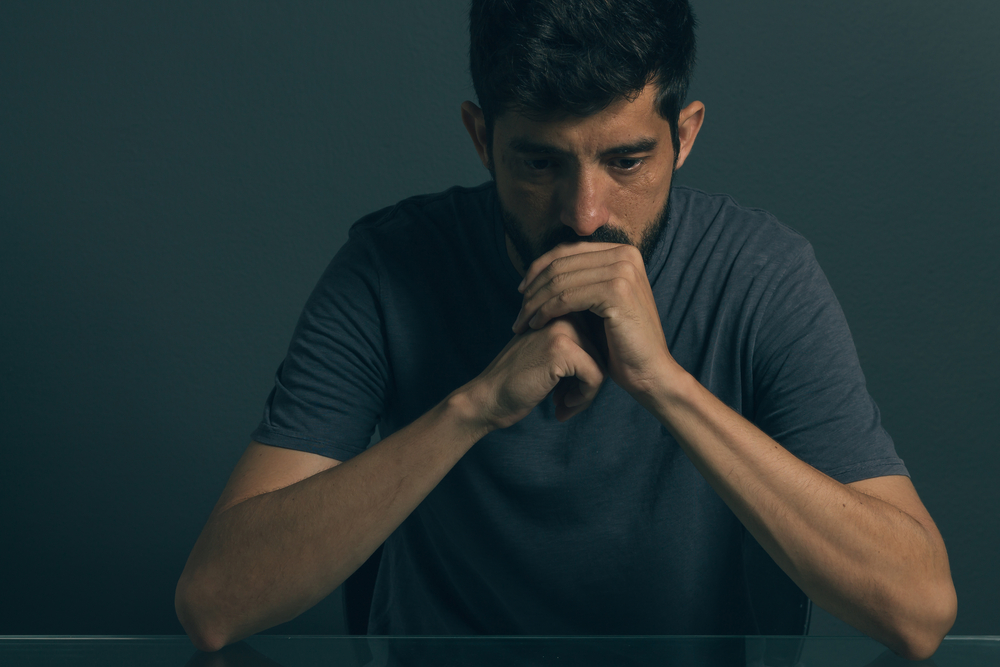We all experience tough times in life, and sometimes those experiences can leave lasting marks. It’s not always easy to recognize the lingering effects of trauma, especially when they show up in subtle ways. Maybe you feel a bit more on edge than usual, or you find it difficult to concentrate. Perhaps your sleep is restless, or you’re experiencing unexpected emotional outbursts. These might be signs that you’re carrying the weight of a past trauma. Here are some of the common symptoms that can emerge after going through a difficult experience.
1. You have nightmares or intrusive thoughts.

Sleepless nights filled with vivid nightmares or sudden flashbacks during the day can be incredibly distressing. These intrusive thoughts and images seem to come out of nowhere, bringing back the pain and fear of the traumatic event. It’s as if your mind is trying to process the experience, but it’s doing so in a way that feels overwhelming and uncontrollable.
2. You feel constantly on edge and easily startled.

Your body is in a perpetual state of high alert, as if danger is lurking around every corner. Even the slightest noise or unexpected movement can trigger a jumpy reaction. This hypervigilance is your nervous system’s way of trying to protect you, but it can also make it difficult to relax and feel safe in your own skin.
3. You avoid people, places, or things that remind you of the trauma.

Certain triggers can bring back the emotional intensity of the traumatic event, making you feel overwhelmed and unsafe. You might instinctively avoid anything that reminds you of what happened, even if it means isolating yourself from loved ones or missing out on activities you once enjoyed. It’s like your mind is trying to protect you from further pain, but it’s also keeping you stuck in a cycle of avoidance. As Psych Central notes, it’s possible to overcome these triggers, but first they must be identified before intervention can take place.
4. You feel emotionally numb or disconnected from others.

In the aftermath of trauma, it’s not uncommon to feel like you’re going through the motions of life without really feeling anything. You might find it difficult to connect with others, experience joy, or feel a sense of purpose. This emotional numbness is a coping mechanism, a way to protect yourself from overwhelming feelings, but it can also create a sense of isolation and loneliness.
5. You struggle with guilt, shame, or self-blame.

Negative thoughts and self-critical beliefs can swirl around in your mind, making you feel responsible for what happened or unworthy of happiness. You might constantly question your actions, choices, and even your worth as a person. These feelings of guilt and shame can be incredibly heavy to carry, creating a barrier to healing and self-acceptance.
6. You experience physical symptoms like headaches, stomachaches, or fatigue.

Trauma isn’t just an emotional experience; it can also manifest in physical ways. You might notice an increase in headaches, digestive problems, muscle tension, or overall fatigue. These physical symptoms are often overlooked, but they’re a real and valid part of the healing process. Your body is holding onto the stress and trauma, and it’s important to address these physical manifestations alongside the emotional ones.
7. You have difficulty concentrating or making decisions.

Your mind might feel foggy or scattered, making it hard to focus on tasks or make even simple choices. You might find yourself easily distracted, forgetful, or struggling to complete projects. This cognitive impairment is a common symptom of trauma, as your brain is still processing the experience and working to restore its normal functioning.
8. You turn to unhealthy coping mechanisms.

When the pain of trauma becomes too much to bear, it’s easy to fall into unhealthy coping mechanisms like substance abuse, overeating, or self-harm. These behaviors might provide temporary relief, but they ultimately worsen your well-being in the long run. It’s important to seek healthier ways to manage your emotions and find support from loved ones or professionals.
9. You have difficulty maintaining healthy relationships.

Trauma can shake the foundations of trust and intimacy, making it challenging to build and maintain healthy relationships. You might struggle with emotional intimacy, fear vulnerability, or push others away. Communication can become strained, and misunderstandings can arise easily. It’s important to recognize that these difficulties are often rooted in the trauma you’ve experienced and that seeking support from loved ones or a therapist can help you navigate these challenges.
10. You have a negative outlook on life and the future.

The world might seem like a dark and dangerous place, and you might find it hard to imagine a positive future for yourself. You might feel hopeless, pessimistic, or believe that you’ll never be truly happy again. This negative outlook is a common symptom of trauma, as the experience can shatter your sense of safety and optimism. However, it’s important to remember that healing is possible and that you can regain a sense of hope and joy in life.
11. You experience a loss of interest in activities you once enjoyed.

Hobbies, passions, and social activities that once brought you pleasure might now feel meaningless or burdensome. You might find it difficult to muster the energy or motivation to engage in things you once loved. This loss of interest is a symptom of depression, which often co-occurs with trauma. It’s important to seek support and find new ways to connect with joy and fulfillment in your life.
12. You have sudden mood swings or emotional outbursts.

Your emotions might feel like a roller coaster, with sudden highs and lows that seem to come out of nowhere. You might experience anger, irritability, sadness, or anxiety in intense bursts. These emotional fluctuations are a common response to trauma, as your brain is still processing the experience and trying to regulate its emotional responses.
13. You feel a sense of detachment from your body or surroundings.

Sometimes, it might feel like you’re not really present in your own body or that the world around you seems unreal or dreamlike. This dissociation is a coping mechanism, a way to distance yourself from the pain and intensity of the traumatic event. While it might provide temporary relief, it’s important to reconnect with yourself and the present moment in order to heal.
14. You experience flashbacks or a sense of reliving the trauma.

Flashbacks are vivid, intrusive memories that make you feel like you’re re-experiencing the traumatic event all over again. You might see images, hear sounds, or feel sensations associated with the trauma, even though you’re in a safe environment. These flashbacks can be incredibly distressing and trigger a range of other symptoms like anxiety, panic, and physical discomfort.
15. You feel disconnected from your sense of self.

Trauma can shake the core of your identity, leaving you feeling lost and unsure of who you are. You might question your values, beliefs, and even your sense of purpose in life. This identity crisis is a normal part of the healing process, as you begin to redefine yourself in the aftermath of the traumatic experience.
16. You struggle with addiction or other self-destructive behaviors.

In an attempt to numb the pain or cope with overwhelming emotions, you might turn to substances like alcohol or drugs, or engage in other risky behaviors. As Psychology Today notes, numerous studies have shown a link between childhood trauma and addictive behavior. These self-destructive patterns can provide temporary relief, but they ultimately worsen your well-being and create additional problems. Seeking professional help is crucial for addressing these behaviors and finding healthier ways to cope.




